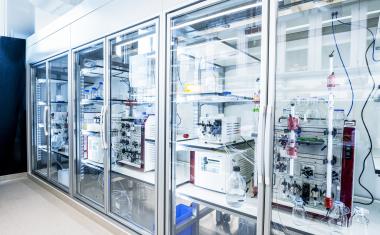Scotland Plans to Opt Out of GM Crops
Scotland has announced plans to ban the growing of genetically modified crops on its soil and also will request that the country be excluded from any European consents for the cultivation of GM crops. Richard Lochhead, Scottish rural affairs secretary, said the regional government is not prepared to "gamble" with the future of the country's £14 billion food and drink sector.
The secretary said Scotland's request for opt-outs from GM crop consent would cover an EU-approved variety of genetically modified maize (made by Monsanto) and six other GM crops awaiting authorization (most of which also belong to the US giant’s portfolio).
"There is no evidence of significant demand for GM products by Scottish consumers,” Lochhead said, adding, “I am concerned that allowing GM crops to be grown in Scotland would damage our clean and green brand.” He said he had “heard directly from food and drink producers in other countries that they are ditching GM because of a consumer backlash.”
An amendment drawn up by the European Commission – but not yet ratified by the Council – would allow member states and devolved administrations such as Scotland’s to restrict or ban the cultivation of genetically modified organisms within their territory. As yet, it is not clear which powers will be devolved to Scotland. Non-binding pledges made by British prime minister David Cameron last year, after the country voted 55:45 to stay in the union, have not been entirely quantified.
The secretary’s announcement was welcomed by Alison Johnstone, a member of the Scottish Parliament representing the Green Party, as well as by environmental advocacy groups. Johnstone said the government should also “challenge” big retailers to improve their labelling to show whether meat, eggs and dairy products come from animals fed on GM feed.
For the growers’ side, Scott Walker, head of the farming union NFU Scotland, expressed disappointment with the proposed ban. "Other countries are embracing biotechnology where appropriate and we should be open to doing the same here in Scotland," Walker told UK media, adding that “these crops could have a role in shaping sustainable agriculture at some point and at the same time protect the environment."
Huw Jones, a professor of molecular genetics at agricultural science group Rothamsted Research, called the announcement a "sad day for science and a sad day for Scotland.” GM crops approved by the EU are “safe for humans, animals and the environment,” Jones asserted.


















